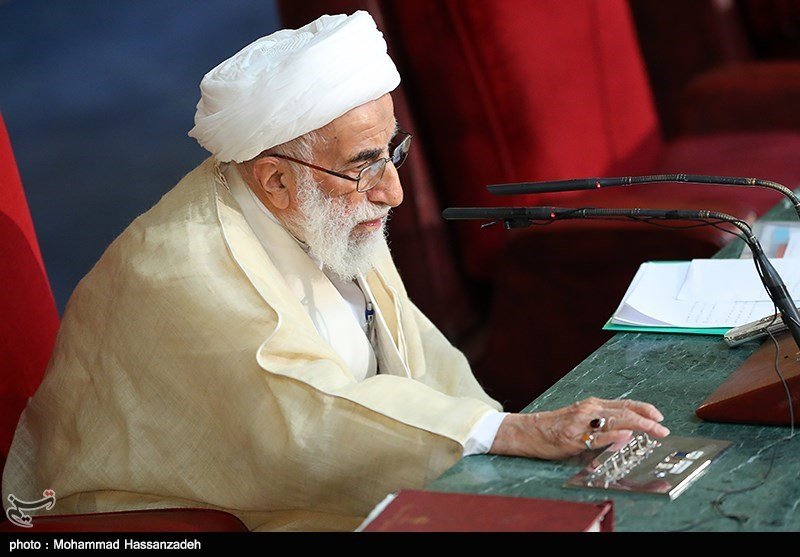Jannati advises officials not to trust Europe

TEHRAN – Ayatollah Ahmad Jannati, chief of Iran’s Assembly of Experts, says the Europeans are worse than the Americans in trying to deprive Iran of the benefits of the 2015 nuclear deal, aka the Joint Comprehensive Plan of Action (JCPOA), advising officials not to fall for them.
“Some imagine they could rely on the Europeans when America withdraws from the JCPOA,” he said in a Thursday meeting of the assembly, censuring Europe for dragging its feet on adopting practical measures to save the 2015 multilateral nuclear agreement following the U.S.’s withdrawal.
The senior cleric said he thought the Islamic Republic will ultimately have to “set fire” to the deal, referring to Leader Ayatollah Ali Khamenei’s statement in June 2016, who said if the U.S. tore the deal, as they had threatened, the Islamic Republic would set fire to it.
“The Europeans are however dragging their feet and would do nothing in our interest,” Jannati said. “The Europeans are worse than the Americans. If not, they are not any better.”
In May 2018, U.S. President Donald Trump unilaterally withdrew his country from the JCPOA in defiance of objections from the entire international community.
In response, Iran’s other partners in the deal, especially Washington’s own allies, stressed their commitment to the deal and vowed efforts to compensate for the U.S.’s absence and keep the deal in effort.
In turn, Iran said it would only stay in the deal if the Europeans manage to make sure Tehran will be able to collect the economic dividends of the JCPOA when the U.S. leaves and unleashes fresh economic pressure against the Islamic Republic.
Following Washington’s exit, Ayatollah Khamenei said, “The European sides are obligated to provide necessary guarantees with regard to the JCPOA, but the country’s economy must not be tied to this issue.”
The European Union has promised to set up the so-called special purpose vehicle (SPV), a payment mechanism aimed at facilitating business with Iran irrespective of the U.S. bans.
The 28-nation bloc, however, has come under fire for failing to speed up efforts to launch the SPV, which many analysts view as a question of sovereignty for Europe in the face of the U.S. The EU first promised to launch the SPV on November 4, 2018, the same day U.S. sanctions were reimposed.
SP/PA
Leave a Comment